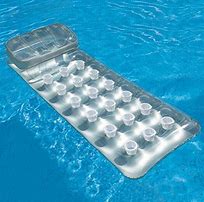 “It is not what I have been through in my life that defines who I am, it’s how I got through it that has made me the person I am today”-Unknown
“It is not what I have been through in my life that defines who I am, it’s how I got through it that has made me the person I am today”-Unknown
How many of us are willing to accept all of the experiences we’ve had? The good? The Bad? The Ugly? No, I am not digressing to conversation about Clint Eastwood movies here-sorry; would have saved you some pain, huh? The truth is that in order to function from day-to-day we often block things that are painful only to be smacked in the face by a memory that comes rushing to the surface when it is triggered by a present circumstance. “Oh, yeah….I remember that happened,” a tiny voice in our head whispers. “gulp”.
I like to describe this phenomenon of pushing down painful experiences by using the “clinically sophisticated” metaphor of the inflatable pool raft. You know the kind? The ones that are big and puffy, usually silver. You try so hard to get on top of them, pushing them down into the water so you can relax comfortably. Trouble is, they keep popping up and usually knock you off a few times before you are successful. If you do get comfy, its not a stable situation, is it? Your brother comes along, or your cousin, wife-whoever, and tips you right off of it-into the water. Now you are back at square one. Dealing with those raw emotions all over again. Does this resonate with you? It is a strategy referred to as suppression.
So what if I told you that there was a way to conquer the inflatable pool raft of emotions that does not include taking a running leap off the side of the pool to land squarely in the center? (good luck with that) Recent research has shown that when we are triggered to recall painful memories, choosing to focus on the context of the situation, rather than the emotions that we felt, has the possibility of “lessening the severity of a negative memory with prolonged use” (Beckman.ilinois.edu) For example, instead of recalling how sad you were at a friend’s funeral, think about the context: how beautiful the flowers were, the minister’s uplifting eulogy, what outfit you wore, who accompanied you…etc. These thoughts help to form different neural pathways in your brain that become associated with the event and help train your mind to go to the context of the memory rather than the emotion as time goes on. You’re not wiping away the experience, you are reframing it. Think of it as a “mindful memory”. You are grounding yourself.
It’s true, that what we have experienced makes us who we are. This, however, does not mean that we need to relive the pain. We can go forward with hope and happiness while not having to worry about pushing down that raft. We can let the air out a bit and make it more manageable.
Much love,
Christy~*


 Tip: Check out the wellness tracker. It’s a simple but powerful tool designed to help you remember the promises you make to yourself. As you complete wellness activities your tree will blossom, and so will you!
Tip: Check out the wellness tracker. It’s a simple but powerful tool designed to help you remember the promises you make to yourself. As you complete wellness activities your tree will blossom, and so will you!

